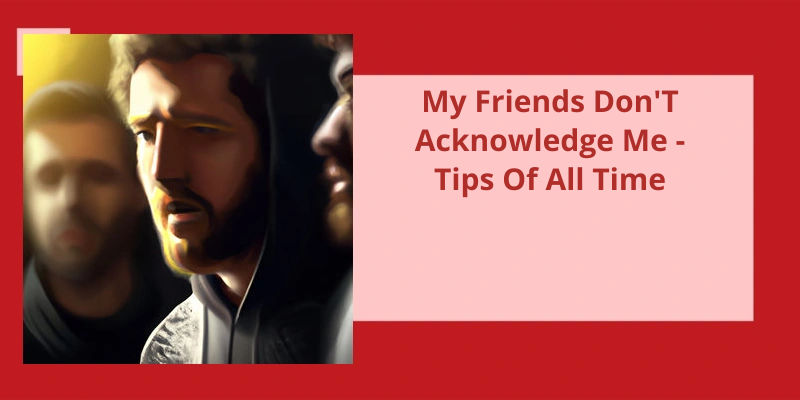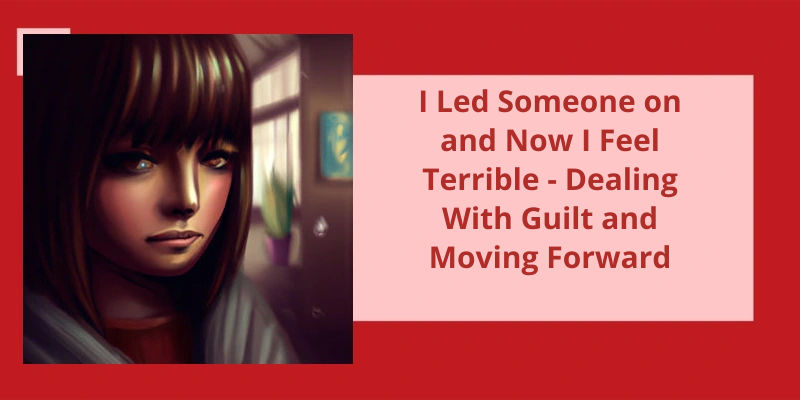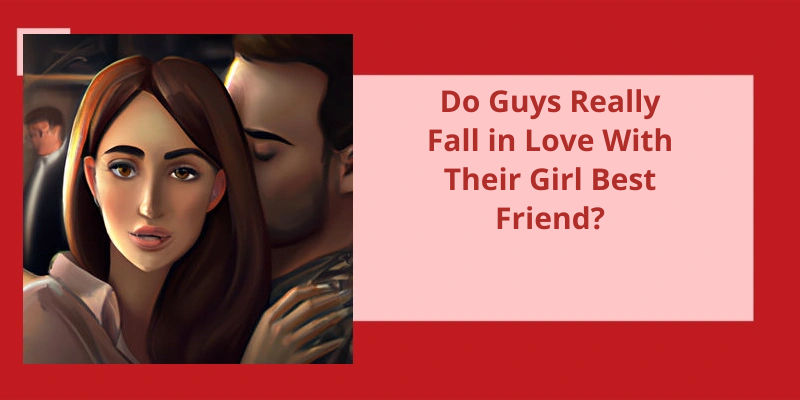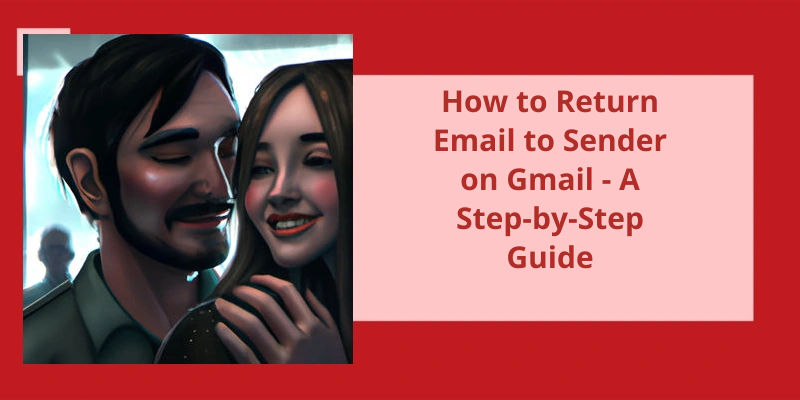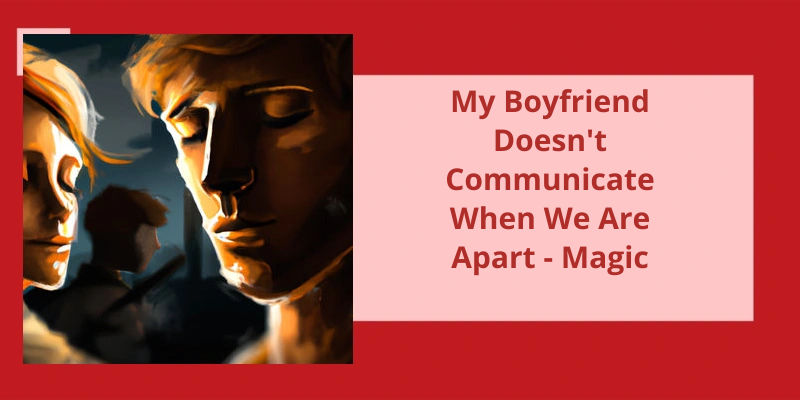Feeling ignored or invisible by your friends can be a painful experience that leaves you questioning your worth and the strength of your relationships. It’s natural to desire acknowledgment and validation from those close to you, as it reinforces our sense of belonging and connection. However, if you find yourself in a situation where your friends don't acknowledge you, it's essential to address this issue and seek a resolution. In this article, we will explore some timeless tips that can help you navigate through this challenging situation, understand the possible reasons behind their behavior, and find ways to improve your friendship dynamics. So, if you're looking for practical advice on how to handle this situation and foster healthier bonds with your friends, keep reading for the tips of all time.
Why Does My Friend Not Acknowledge Me?
It can be incredibly frustrating when your friends don’t acknowledge you. You wonder why they seem to ignore you or brush you off, leaving you feeling invisible and insignificant. There could be several reasons behind this behavior, and understanding them might help alleviate the hurt and confusion.
One possible reason for your friends lack of acknowledgment is your negativity. If you’re constantly complaining or being pessimistic, it can be exhausting for others to be around or engage with you. Negative energy can bring down the mood and make conversations uncomfortable. Try to be more conscious of your attitude and focus on being more positive and uplifting.
Another possibility is that your energy levels may not be aligned with your friends. If you’re constantly buzzing with high energy while your friend prefers a more laid-back approach, they might find it difficult to keep up with your pace. Additionally, if you’re too low-energy, your friend might perceive you as uninterested or distant. Strive to find a balance that matches your friends energy while staying true to yourself.
Sometimes, people might not acknowledge you because you tend to dominate conversations by talking too much about yourself. It’s essential to remember that friendships are a two-way street, and it’s crucial to give your friend the opportunity to express themselves and share their experiences. Show genuine interest in their lives and be an active listener.
Furthermore, it’s possible that you often discuss topics that your friend isnt interested in. While it’s essential to have shared interests and engage in activities together, it’s also crucial to respect each others individual preferences. Pay attention to your friends response to different topics and try to find common ground or explore new subjects that might capture their attention.
Assess your own behavior and attitude to determine if you’re overly negative, too high or low energy, talk excessively about yourself, or discuss topics that your friend isnt interested in. By taking steps to address these issues, you can enhance your friendships and foster better communication and understanding. Remember, it’s essential to strike a balance between being true to yourself and considering your friends needs and interests.
How to Approach a Friend About Their Lack of Acknowledgment
- Find the right time and place to talk.
- Choose your words carefully and be honest and non-confrontational.
- Express your concerns and how their lack of acknowledgment makes you feel.
- Listen to their perspective and try to understand their reasons.
- Suggest possible solutions or ways to improve the situation.
- Offer support and let them know you’re there for them.
- Give them time to process the conversation and be patient.
- Follow up and have open communication in the future.
- Remember to approach the topic with kindness and empathy.
Just say yea, whatever. It’s their rudeness and their issue. Don’t make it yours. Remember, you’re worthy, loved, and not alone in this. So, instead of dwelling on their lack of acknowledgement, focus on finding the core within yourself and letting go of the need for validation from others. After all, their failure to acknowledge you says more about them than it does about you. Shift your perspective and rise above their negativity.
How Do You Deal With People Who Don’t Acknowledge You?
Have you ever found yourself in a situation where your friends don’t acknowledge you? It can be a hurtful and isolating experience, but it’s important to remember that their lack of acknowledgement says more about them than it does about you. When someone fails to acknowledge your presence or dismisses your contributions, it’s their problem, not yours.
Finding the core within yourself is essential in dealing with such situations. Remind yourself of your worth and the love and support you’ve in your life. Surround yourself with positive affirmations and supportive people who acknowledge and appreciate you for who you are. Acknowledge the qualities and talents that make you unique and special.
It’s crucial not to internalize their behavior or take it personally. Remember, it’s their loss for not recognizing your value. Sometimes, people are caught up in their own lives or have their perspective skewed, making them oblivious to others around them. Whatever the reason may be, it’s their issue, and you shouldn’t let it define your self-worth.
When faced with friends who don’t acknowledge you, adopt a dismissive attitude. Say to yourself, “Yea, whatever.”. Acknowledge their rudeness but don’t let it affect you. Surround yourself with people who appreciate and uplift you, and don’t waste your energy trying to impress or gain acknowledgement from those who fail to see your worth.
Remember, you’re never alone in this. There are countless individuals who understand and appreciate you for who you are. Seek out meaningful connections and friendships that value and acknowledge your presence. Let go of those who don’t acknowledge you, and focus on building relationships with people who uplift and embrace you wholeheartedly.
Dealing with people who don’t acknowledge you can be challenging, but it’s crucial to find the core within yourself and not let their behavior affect your self-worth. Surround yourself with positive affirmations and supportive people who celebrate and appreciate you. Remember, you’re worthy, loved, and never alone. Just say yea, whatever, and focus on building meaningful connections with those who uplift and acknowledge you fully.
How to Confront Someone Who Consistently Fails to Acknowledge You
If you find that one of your friends consistently fails to acknowledge your presence or efforts, it can be really hurtful and frustrating. Confronting this person about their behavior may help improve your relationship and address the issue. Here are some tips:
1. Choose the right time and place: Find a calm and private setting to have a conversation without distractions.
2. Be direct and honest: Express your feelings calmly and clearly. Use “I” statements to avoid sounding accusatory.
3. Provide specific examples: Explain how their lack of acknowledgment makes you feel and why it’s important to you.
4. Listen actively: Give them an opportunity to explain their perspective and listen attentively without interrupting.
5. Express your expectations: Let them know what behaviors you’d appreciate in terms of acknowledgment and validation.
6. Find a compromise: Discuss and work together to find a solution that satisfies both parties and allows for better communication.
7. Give them time to change: Understand that change takes time, and try to be patient as they adjust their behavior.
Remember, open and honest communication is key to resolving issues within friendships. However, if your friend continues to ignore you or dismiss your concerns, it may be necessary to reevaluate the relationship.
Dealing with someone who consistently fails to acknowledge your feelings can be frustrating and disheartening. However, rather than succumbing to anger and resentment, it’s important to approach the situation with calmness and open communication. Start by expressing your emotions to the person in question, emphasizing why it’s crucial to you that they listen and validate your feelings. If this doesn’t yield the desired results, seeking support from a trusted friend or family member can provide you with an alternative perspective and potentially helpful advice.
What to Do When People Don’t Acknowledge You?
Feeling ignored or unacknowledged by your friends can be hurtful and frustrating. It’s important to handle these situations with grace and composure. One tip that can prove immensely helpful is to remain calm and composed. Getting angry or lashing out will only escalate the situation and make it harder for your friends to understand your perspective.
Take the time to communicate your feelings to the person who isn’t acknowledging you. Be sure to approach the conversation with a calm and understanding demeanor. Explain why it’s important to you that they listen and acknowledge your thoughts and feelings. Sometimes, people may not even realize that they aren’t giving you the attention you seek, so it’s crucial to express your needs openly and honestly.
If, despite your efforts, the person continues to disregard your feelings, it may be helpful to seek support from others. Talk to a trusted friend or family member about the situation. They can provide a fresh perspective and offer valuable advice on how to handle the situation moving forward. Sometimes, an outsiders view can shed light on strategies you may not have considered.
Additionally, it can be beneficial to examine the dynamics of the friendship. Is this a recurring issue or a one-time occurrence? If it’s an ongoing problem, you may need to reconsider the nature of the friendship and whether it aligns with your emotional needs. Surrounding yourself with friends who genuinely value and acknowledge you can make a significant difference in your overall happiness and well-being.
Remember, everyone has their own struggles and priorities. It’s possible that your friends may be preoccupied or simply unaware of the impact their actions have on you. Give them the benefit of the doubt, but also be sure to take care of yourself. You’ve every right to be surrounded by people who uplift and validate your feelings.
In summary, when faced with friends who don’t acknowledge you, maintaining your composure, expressing your emotions calmly, seeking support from others, evaluating the friendship, and prioritizing your own well-being can all be effective strategies. By adopting these tips, you can navigate these situations with grace and take steps towards surrounding yourself with the supportive friendships you deserve.
It’s important to remember that people have their own priorities and responsibilities, which can sometimes cause them to unintentionally neglect their friends. Furthermore, there may be valid reasons behind their delayed responses or lack of attention. It’s crucial to consider these factors before jumping to conclusions about being ignored or neglected by friends.
Is It OK if Your Friends Ignore You?
It can be disheartening when you feel like your friends aren’t acknowledging you or giving you the attention you desire. However, it’s important to remember that their lack of response or engagement may not necessarily be intentional or malicious. There can be a multitude of reasons why your friends may seem distant or unresponsive.
Firstly, people have busy lives and different priorities. Your friends might be going through a particularly demanding phase at work or dealing with personal struggles that consume their mental and emotional energy. In these instances, it’s essential to give them the benefit of the doubt and understand that they may not have the capacity to be fully present in your friendship at the moment.
Another reason could be that your friends simply have a different communication style or preference. Some individuals are naturally less responsive to messages or phone calls, and it doesn’t mean that they’re intentionally ignoring you. They might not view constant communication as a necessary component of their friendships, and thats okay.
Furthermore, it’s crucial to consider the dynamics within your friendship group. People may unintentionally form closer bonds with certain individuals, leading them to invest more time and attention into those relationships. This doesn’t mean they don’t value your friendship, but rather that their focus is naturally directed towards others at times.
Additionally, it’s possible that your friends may be unaware of how their behavior is affecting you. It could be worth having an open and honest conversation with them, expressing your feelings without blame or accusations. By communicating your concerns, you provide an opportunity for them to understand your perspective and potentially make adjustments in their behavior.
Lastly, it’s important to cultivate a sense of self-worth that isnt solely dependent on external validation from others. While friendships are wonderful and fulfilling, it’s also essential to have a strong sense of self and individual interests. Focus on activities and hobbies that bring you joy, build your self-esteem, and allow you to thrive independently. By doing so, you won’t only become more resilient to the occasional neglect of friends but also attract positive energy and support from those around you.
The Impact of Social Media on Friendship: Discuss How Social Media Can Influence Friendships and Contribute to Feelings of Being Ignored or Left Out.
Social media has undoubtedly revolutionized the way we connect and communicate with others, including our friends. While it offers various benefits for maintaining friendships, it can also have a significant impact on our relationships and our emotional well-being.
One of the most common experiences on social media is the feeling of being ignored or left out by friends. As we scroll through our feeds, we may come across posts and photos of our friends having fun without us, which can evoke feelings of jealousy, loneliness, and exclusion.
Moreover, social media platforms can inadvertently perpetuate a distorted image of our friends’ lives. People tend to showcase the highlights of their life online, emphasizing the fun and exciting moments while omitting the mundane or challenging aspects. This selective portrayal of reality can create an unrealistic benchmark for comparison, leading to feelings of inadequacy or FOMO (fear of missing out).
Additionally, the constant presence of social media notifications can distract our friends from engaging in meaningful offline interactions. They may become more focused on their online presence, seeking validation through likes, comments, and shares, rather than investing time and effort into maintaining genuine connections.
To mitigate the negative impact of social media on friendships, open and honest communication is crucial. Expressing your feelings of being ignored to your friends can help them understand your perspective and may lead to positive changes in how you interact both online and offline. It’s also important to remember that the online world doesn’t reflect the entirety of a person’s life, and comparing ourselves to others’ highlight reels isn’t fair to ourselves.
Ultimately, finding a balance between online and offline interactions, practicing self-care, and prioritizing quality time with close friends can help navigate the challenges posed by social media and cultivate healthier and more meaningful friendships.
Source: Is it okay to be hurt over your friends ignoring you?..
Another effective approach to getting your friend’s attention when they’re ignoring you is to address the issue head-on. Rather than making assumptions, it’s crucial to have an open and honest conversation where you ask them directly about the reasons behind their behavior. This direct approach allows them to express themselves and provides an opportunity for mutual understanding and resolution.
How to Get Your Friends Attention When They Are Ignoring You?
Feeling ignored by friends can be extremely disheartening and frustrating. It can leave you questioning your worth and doubting the strength of your friendships. However, before jumping to conclusions or letting resentment grow, it’s crucial to address the situation head-on.
One of the most effective ways to get your friends attention when they’re ignoring you is to have an open and honest conversation with them. Take the initiative and ask them directly why they’ve been ignoring you. While it may feel uncomfortable, hearing their perspective can provide valuable insights into what may be going on.
Approach the conversation with a non-confrontational and understanding attitude. Give them the opportunity to express themselves without judgment. By genuinely listening, you can create a safe space for open dialogue and potentially resolve any misunderstandings or conflicts that may have led to the distance.
Sometimes, friends may not even realize that they’ve been neglecting your presence. Life can get chaotic, and peoples attention can easily be divided. Casually mentioning that youve noticed a distance between you and your friends can serve as a gentle reminder. It may prompt them to reflect on their actions and make an effort to be more attentive.
Open and honest communication is key when it comes to addressing the feeling of being ignored by friends. By discussing your concerns with your friends and actively listening to their perspective, you can work towards resolving any issues that may have caused the distance. However, if the pattern of being ignored persists, it’s crucial to prioritize your own well-being and surround yourself with people who value and acknowledge you.
Conclusion
In conclusion, feeling unrecognized and ignored by friends can be a disheartening experience, but there are several timeless tips that can help navigate this situation. It’s important to practice self-reflection and evaluate the dynamics of the friendships in question. Open and honest communication can bridge gaps and provide clarity on expectations. Strengthening other areas of life, such as pursuing personal interests and forming new connections, can also provide a sense of fulfillment and reduce the need for external validation. Additionally, prioritizing self-care and building self-confidence ultimately allows for healthier, more balanced relationships. Remember, the journey to understanding and finding genuine connections takes time, but with patience and perseverance, it's possible to foster meaningful relationships where your uniqueness is acknowledged and appreciated.

